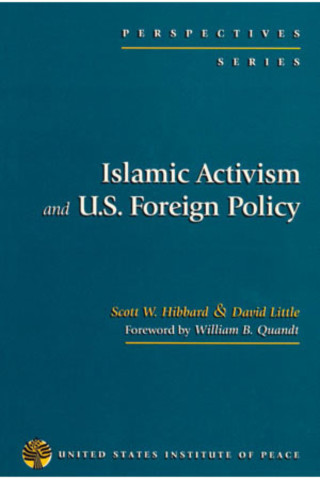Scott W. Hibbard
Scott Hibbard is Associate Professor and Chair of the College of Liberal Arts and Social Sciences at DePaul University. He teaches courses on American foreign policy, Middle East politics, and international relations. He has been at DePaul since 2005 and spent the 2009-2010 academic year teaching at the American University of Cairo as part of a Fulbright Award from the U.S. Department of State. Professor Hibbard worked in the U.S. government for twelve years—as a program officer at the United States Institute of Peace and as a legislative aide in the United States Congress. He is the author of Religious Politics and Secular States: Egypt, India, and the United States and co-author (with David Little) of Islamic Activism and U.S. Foreign Policy.
Author's Books
For many in the West, political violence in Algeria, the Middle East, and elsewhere has come to symbolize the threat of “Islamic activism.” Terrorist attacks such as the bombing on the World Trade Towers have solidified this view. Western governments, however, must deal with the challenge of extremism in the broader context of their relations with diverse states with contrasting histories, geographies, and peoples.
To assess this challenge, the Institute brought together a distinguished group of policy analysts, practitioners, and scholars for a series of frank discussions. The sessions analyzed the nature of Islamic activism – including moderate political parties and militant extremists – and the options for policymakers to mitigate violence in a range of cases.
The main problem for the United States, participants concluded, is how to confront militant extremism while recognizing the importance of religious identity and the legitimate need in many countries for social and political reform. A foreword by William B. Quandt, Middle East expert and former National Security Council staff member, spells out how policymakers can respond most effectively to the challenge of Islamic activism.

